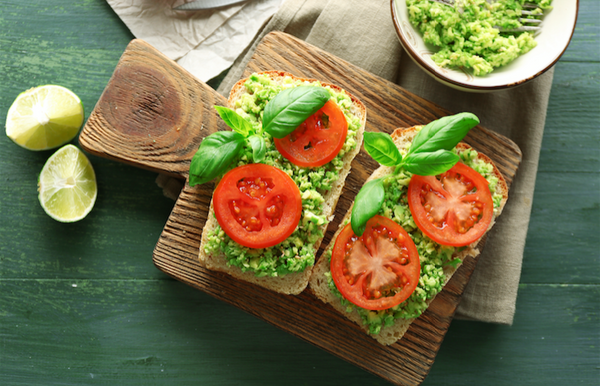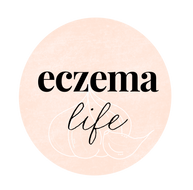Itchy Dozen Worst Foods For Topical Steroid Withdrawal

Here are the (surprising) foods most likely to worsen the symptoms of topical steroid withdrawal syndrome and red skin syndrome. And two effective remedies …
1. Dairy productsAside from being the milk meant for a baby calf or goat, dairy products are problematic for three reasons:
- More than 40% of people with skin inflammation are sensitive to a milk sugar called lactose, according to Australian research from the RPA Hospital Allergy Unit.
- Yoghurt, mayonnaise, sour cream and cheese are rich sources of histamines, which affect blood vessel dilation and can trigger flushing, itching and rash symptoms.
- Dairy products can also cause damage to the lining of the gastrointestinal tract, in sensitive people. When the gut lining is damaged from eating dairy products, tiny holes allow larger food particles to enter the body and allergic reactions and sensitivities can result. Naturopaths often refer to this as 'leaky gut syndrome' and the medical term doctors use is 'increased intestinal permeability'.
The best remedy is to avoid dairy products for at least 12 weeks or more.
2. Fermented foods
While fermented foods such as sauerkraut can be health promoting and useful for many health problems, they can worsen TSW and eczema and promote allergic symptoms for two reasons:
- They are rich in histamines/amines, which are vasodilators that can trigger blood vessel dilation and skin rashes in sensitive people
- They contain yeast, which is usually used in the fermentation process, and they can contain moulds.
Fermented foods include pickles, pickled cabbage, sauerkraut, yoghurt, kimchi, chutneys, mayonnaise, kefir, sour cream and fermented fish. Vinegars, including healthy apple cider vinegar, are also fermented and contain sulfites, which can worsen eczema.
On saying this, if you feel fermented foods have cleared up your TSW, then you can still use fermented foods as you may not be sensitive to histamine, mould or yeast. However, if you still have TSW despite using fermented foods for months then you might like to avoid them to test if you do better without them. I have found hundreds of my patients at the Eczema Life Clinic do better when they avoid fermented foods, which is why they make the Itchy Dozen list.
3. GrapesIf you have TSW, RSS, eczema or asthma, then grapes and grape-products such as wines, sultanas, raisins and juices are your worst nightmare. They are very rich sources of three natural ‘itchy’ chemicals known as salicylates, amines and glutamates (monosodium glutamate/MSG), which worsen skin inflammation symptoms, according to research from the RPA Hospital Allergy Unit in Sydney. Grapes, especially grape juice, can also trigger asthma attacks.
4. Avocado
While avocado is a healthy addition to your diet when you don't have TSW or eczema, avocado is one of the richest sources of amines (histamines) and itch-promoting salicylates so it can worsen your symptoms. Read the end of the article for a remedy for salicylate sensitivity so you can eat avocado.
5. Tomatoes
Tomatoes and products containing tomato, including tomato ketchup and spaghetti bolognaise, are another triple threat as they are very rich sources of salicylates, amines (histamines) and natural MSG. Symptoms include itchy throat, rash around the mouth or on the face, itchy skin and hyperactivity or anxiety.
6. Highly acidic fruitsKiwi fruits, pineapple, plums, oranges and mandarins are strongly acidifying fruits and rich sources of both salicylates and amines – they are guaranteed to worsen itchy, rash-prone skin.
Lemons and limes are slightly better as they are highly alkalizing fruits once digested, but they still contain high levels of salicylates and amines. Limes are sometimes mistakenly listed on low salicylate foods lists (online) but these lists are incorrect. Avoid citrus and high acid fruits for 12-weeks and see your skin improve.
7. Soy sauce/tamari sauce
Soy sauce and other sauces including tamari and marinades are very rich in amines and MSG (both natural or artificial).
According to a Japanese study published in the Journal of Dermatology, consuming soy sauce, fermented soybeans, chocolate, cheese, coffee and yoghurt causes a worsening of eczema symptoms. After the participants avoided these foods for three months all of them had significantly reduced eczema symptoms.
8. Dark green vegetables
Dark leafy greens including broccoli, spinach, silverbeet and kale are great for overall health but they are unfortunately problematic while you have TSW if you are sensitive to salicylates, amine and MSG (because they are very rich sources of all three chemicals).
TRY THIS SIMPLE TEST:
If you are unsure if you are sensitive to salicylates, amines and glutamates do this test: Drink 3 green drinks (with spinach, kale, kiwi fruit, orange and wheatgrass) and eat avocado for 1-3 days and see how your skin reacts (caution: do the test for 1 day only if your skin quickly gets worse). Does your skin feel better after this test or is it on fire or do you sleep worse, are you more itchy or is your skin more red? If it is any of these symptoms, then you should avoid salicylates, amines and MSG/glutamates for 12-weeks then slowly reintroduce these foods back into your diet. Don’t do this test if you are an asthmatic as it could worsen your asthma.
9. Dried fruits
All types of dried fruits including dried apricots, dates and sultanas, are high in salicylates, MSG and amines, and some contain the “itchy” preservative sulphur dioxide (sulfites). In fact, dried fruit could be called a quadruple threat, and should not be in your (or your child’s) lunch-box if TSW, asthma or eczema symptoms are present.
10. Deli meats
Deli meats including sausages, ham, bacon and flavoured meats, to name a few, are high in nitrates, flavour enhancers and saturated fats, which are all enemies of TSW. Sausages, meat pies, devon and salami are also rich sources of salicylates, amines and MSG/glutamates.
11. Wheat
Wheat and products containing wheat can increase the itch and TSW because they are strongly to the body and wheat sensitivity is common in people who have TSW or eczema. Some also need to avoid gluten. For those who are fine with gluten, wheat-free alternatives include gluten-free oats, spelt, rye and barley. Gluten-free options include rice, quinoa and buckwheat.
12. Junk food
Junk food, especially coloured lollies (sweets) and chips (crisps), usually contain artificial colours and flavours, including MSG and other artificial flavour enhancers and they are highly acidifying due to the high sugar and fat content.
Why would I be sensitive to chemicals?
People with topical steroid withdrawal are often sensitive to chemicals because they have been applying chemicals onto their skin for many years.
Topical steroids and other medicated skin creams are chemical-based. Your liver, when it contains abundant liver detoxifying nutrients, will deactivate these chemicals on a daily basis. However, over-exposure of chemicals will deplete your liver (and body) of important nutrients that promote skin repair.
People who also apply food products, such as goat's milk products and nut oils onto broken skin (ie eczema/TSW), for years can develop severe allergies to these ingredients. The message here is to be careful what you apply to broken/irritated skin.
The remedies that work:
There are two ways to strengthen your health so you can expand your diet and enjoy these foods.
Avoiding “itchy” foods and eating a nutritious, low chemical diet for about 12 weeks reduces the chemical load on your liver and reduces toxins in your digestive tract. This gives your liver a chance to stock up on the nutrients needed to process chemicals more effectively and with the help of nutritional supplements, then you can slowly expand your diet. The Eczema Detox is a low chemical diet which shows you how to expand your diet to include more foods once your TSW has cleared up.
If you are following an elimination diet of any kind, use Skin Friend for nutritional support.
After ten years of research and five years of testing on patients with eczema, dermatitis, TSW, hives and other skin inflammation, Skin Friend is now available without prescription. Skin Friend AM contains ingredients that assist in the healing and repair of the skin and supports healthy functioning of the immune system. Calcium Matrix PM contains a highly alkaline blend of calcium and magnesium. The powders are child-friendly and vegan-friendly.
Skin Friend works by three mechanisms:
- They are highly alkalising to help neutralise the acids associated with TSW and they are free of the irritating chemicals.
- They do not contain irritants as are free of salicylates, amines, glutamates, soy, dairy, lactose, gluten, nuts, eggs, and they are non-GMO.
- They contain the nutrients required by the liver to detoxify salicylates and other chemicals. This over time reduces sensitivities to chemicals and most foods, so you can eat a wider variety of foods and remain rash-free.
Skin Friend also offers important nutritional support for people with skin inflammation. The supplements can be used on their own for a minimum of 12 weeks, or in cases of severe TSW, take Skin Friend while following The Eczema Detox.
Note some people with severe chemical sensitivities may need to do the treatments for longer than 12 weeks.
About the author: Nutritionist Karen Fischer runs the Eczema Life Clinic in Sydney, Australia. She has worked with hundreds of patients with TSW, red skin syndrome, eczema and dermatitis. She is a frequent guest nutritionist on Nine Network's Today Extra.
This article may not be reproduced without written consent from the author from www.eczemalife.com
References
Fischer, K., 2013, The Eczema Diet, First Edition, Exisle Publishing, Wollombi, Australia.
Rudzeviciene, O., et al., 2004, ‘Lactose malabsorption in young Lithuanian children with atopic dermatitis’, Acta Paediatrica, vol. 93, no. 4, pp. 482–6.
Loblay, R.H. and Swain, A.R., 2006, ‘Food Intolerance’, Recent Advances in Clinical Nutrition, retrieved 1 April 2011 from Australian Government website www.nsw.gov.au.
Uenishi, T., et.al, 2003, ‘Role of foods in irregular aggravation of atopic dermatitis’, Journal of Dermatology, vol. 30, pp. 91–7.
Nakanishi, Y., et al, 2008, ‘Monosodium glutamate (MSG): a villain and promoter of liver in ammation and dysplasia’, Journal of Autoimmunity, vol. 30, no. 1–2, pp. 42–50.
